Skin Food: How Nutrition Impacts Your Complexion
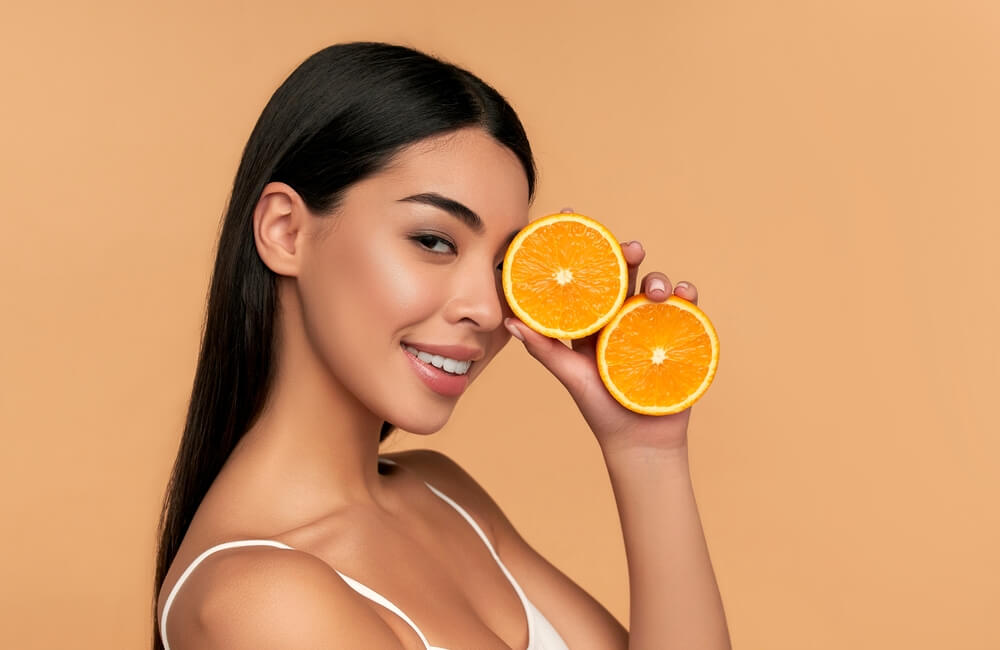
“You are what you eat” is a phrase that really holds true when it comes to the skin. With the skin being the body’s largest organ, it’s directly impacted by the food that you consume. Give it the nutrients that it needs and it will thrive, whereas a poor diet will have the opposite effect.
So, what exactly is good skin food? What should you be eating if you want your skin to look its very best? Read on as Vine Vera talks you through the most vital nutrients for a healthy complexion.
Antioxidants
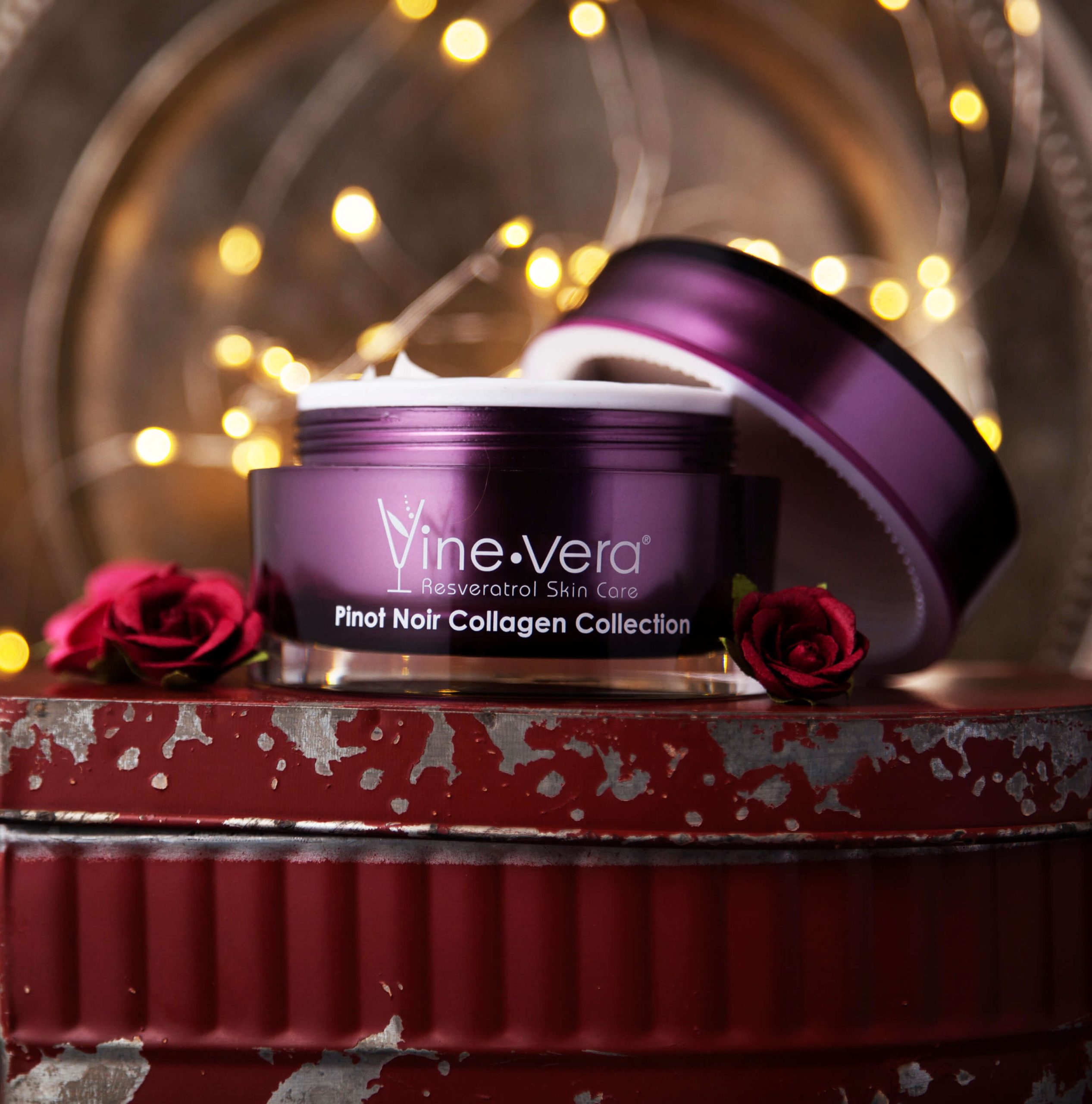
Antioxidants are compounds that are found in plant foods, with some containing a denser array of antioxidants than others. Their main purpose is to neutralize free radical damage, which occurs when the body is exposed to various external sources, including UV rays and air pollutants.
When it comes to the skin, free radicals are bad news. They’re one of the main causes of premature skin aging due to the oxidative stress that they cause in the skin. From wrinkles to dullness to dark spots, free radicals are behind so many of the common skin concerns that people experience. Once the damage starts to happen, it will continue to accelerate over time. Fortunately, eating antioxidants can help to protect your skin, as well as the rest of your body, from the harmful effects of free radicals.
This is easy if you fill your plate with plenty of fresh fruits and vegetables. Try to consume a variety of colors as each color signifies a different range of antioxidants.
At the same time, it can also be helpful to use antioxidant-rich skincare products. They’ll work from the outside to reduce the appearance of free radical damage, leaving your skin looking healthier. The Resveratrol Pinot Noir Phyto Silk Mask would be a great choice. It’s packed with super fruits, from goji to bilberry to pomegranate. All of these ingredients are loaded with antioxidants that your skin will love!
Vitamins
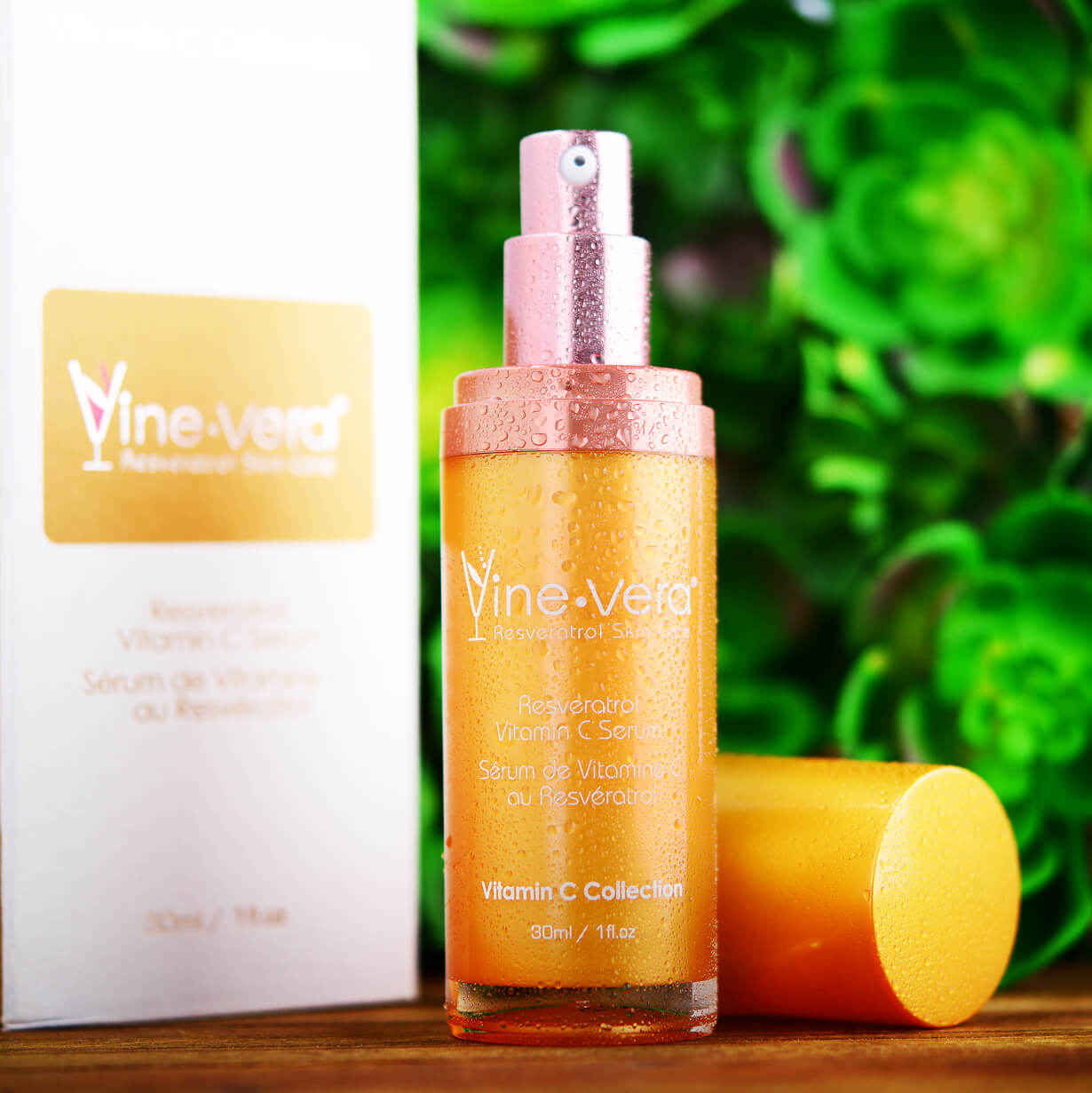
You’re probably already aware of how essential vitamins are for your health. Well, this applies to the health of your skin too.
Each vitamin performs its own role. They’re all vital but, in terms of your complexion, some are more influential than others.
When it comes to skin food, one of the most important vitamins to be consuming plenty of is vitamin C. You’ll find it in large amounts in citrus fruits, as well as in strawberries, broccoli, kiwi, and sweet potatoes. Eat enough of it and you’ll be helping your complexion with protein production, which will give you a smoother and firmer appearance. Enhance this even further by adding a vitamin C serum, such as the Vine Vera Resveratrol Vitamin C Serum, to your skincare routine!
Vitamin A is another vitamin that can keep your skin looking young and vibrant. Eggs, dairy products, and liver are good direct sources of it while several plant foods, such as sweet potatoes, carrots, and bell peppers, contain a compound known as provitamin A. It’s converted into vitamin A by the body once consumed and can actually be more beneficial than foods that contain vitamin A itself. For example, just half a cup of baked sweet potato will give your body six times its daily requirement of the vitamin!
Vitamin E is worth paying attention to as well. Not only does it protect your complexion from free radical damage but it also reduces the feeling of inflammation. You’ll find it in fatty fish, avocados, walnuts, sunflower seeds, and more. You’ll also find it, along with vitamin A, in the vitamin C serum that we recommended above!
Essential Fatty Acids
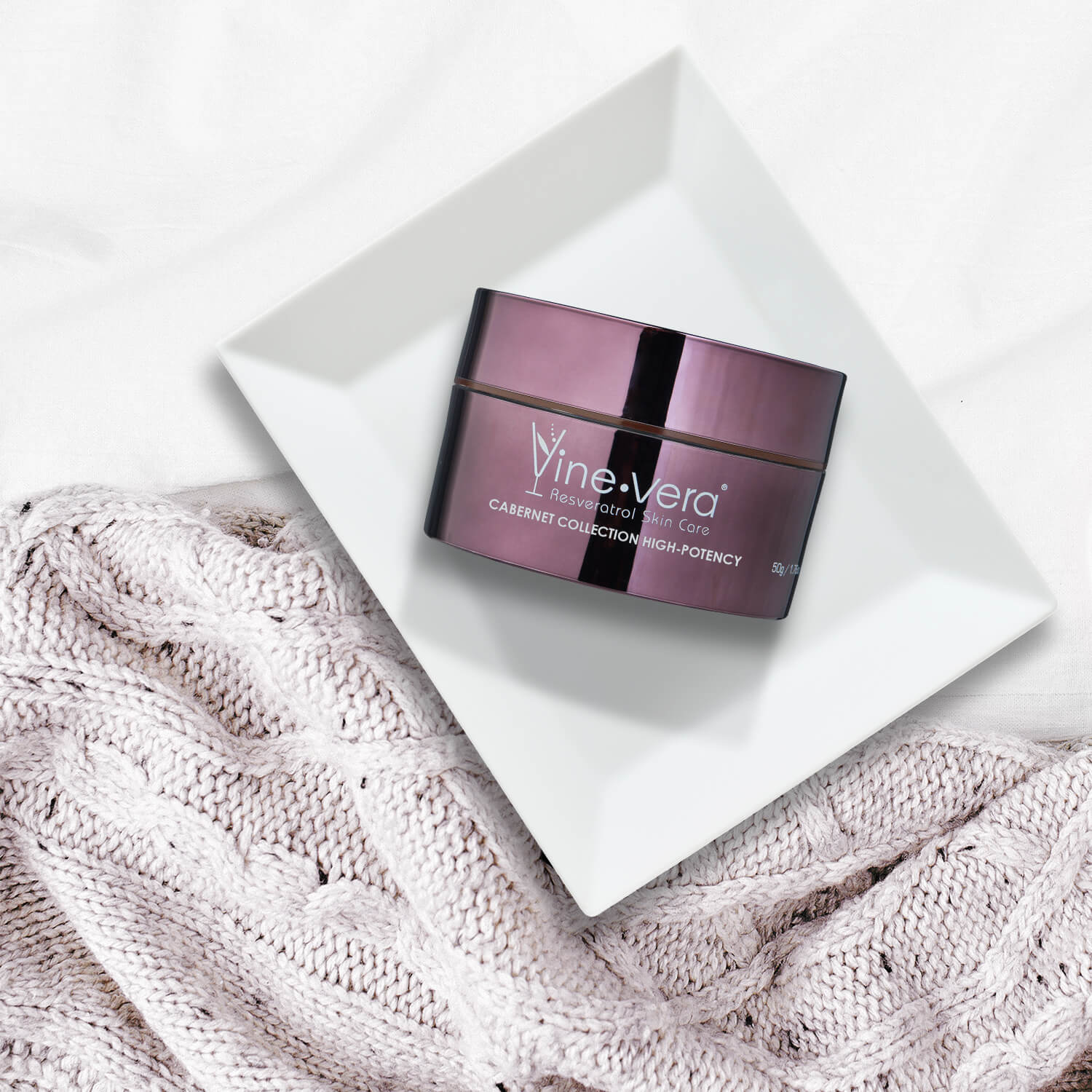
Essential fatty acids are fatty acids that are crucial for human health. Since the body doesn’t produce them, they must be consumed through your diet. Oily fish, such as salmon and sardines, are known for being a great skin food because of how they’re brimming with essential fatty acids. You’ll also find them in chia seeds, flaxseeds, and walnuts.
What makes these fatty acids so essential? Well, when it comes to your skin, they’re an integral part of your skin’s natural barrier. This keeps your skin protected from external damage while also playing a key role in moisture retention.
Fatty acids have also been proven to help reduce the feeling of inflammation. They can make a huge difference to a complexion that’s suffering from an inflammatory skin condition, such as psoriasis, eczema, rosacea, and acne.
If your complexion is particularly prone to inflammation, dehydration, or dryness, it would be worth adding fatty acids to your skincare routine too. Many plant oils contain them, as do plant butters. You’ll find both, in the form of sunflower seed oil and shea butter, in the Vine Vera Cabernet High Potency Moisture Day Cream. Thanks to its fatty acid content, this moisturizer is fantastic at keeping the skin barrier feeling supported and more resilient.
Amino Acids and Protein
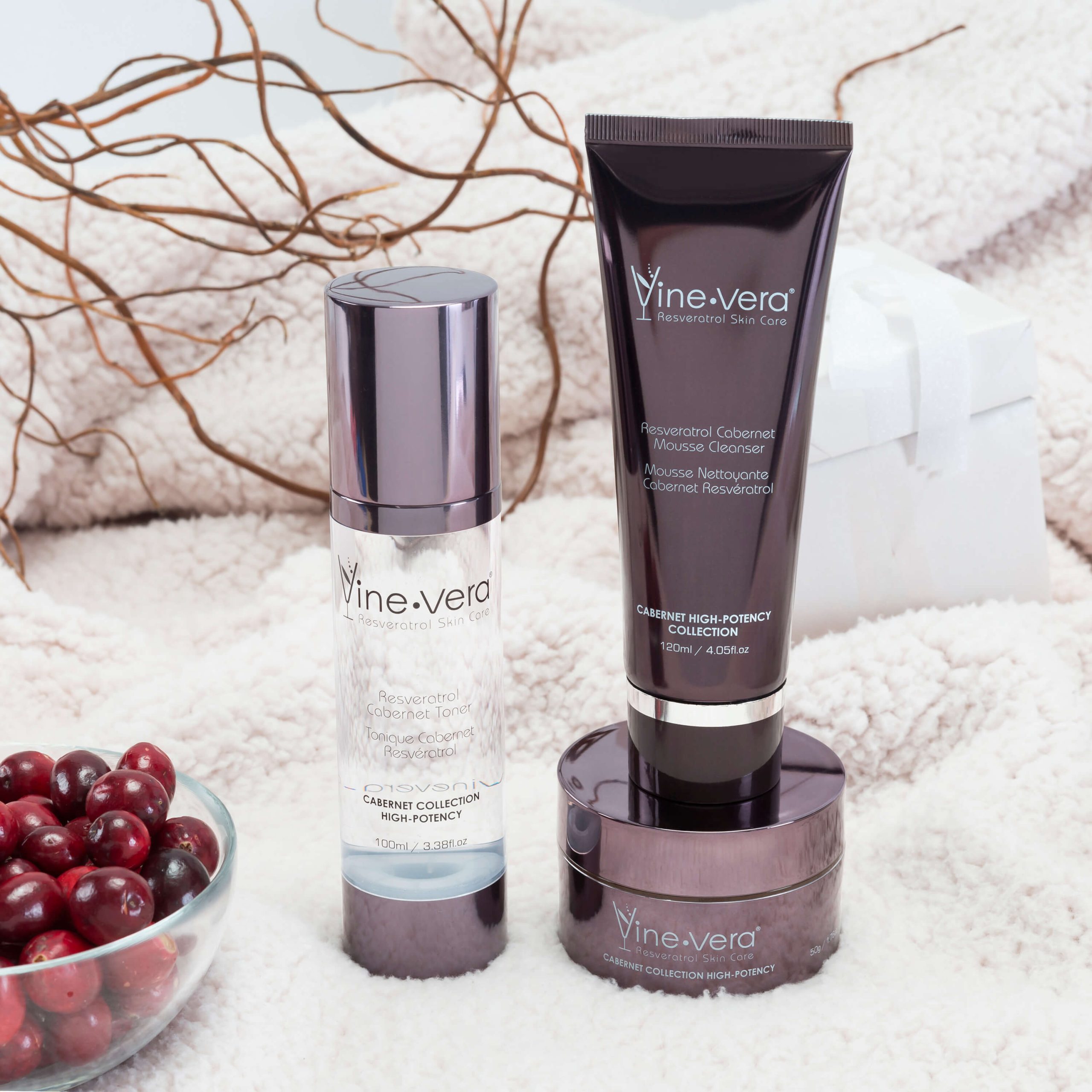
You might have heard of collagen and elastin, the two compounds that keep the skin looking smooth, firm, and youthful. Well, both of these are proteins, which your skin creates by joining together different amino acids.
Where do these amino acids come from? Protein-rich foods. While people often immediately associate this skin food with meat, there are plenty of plant-based protein sources out there too. Some people find that dairy and meat products exacerbate acne breakouts, with research confirming this to be true. If this is the case for you, try adding more beans, lentils, nuts, and seeds to your diet.
In addition to being consumed, amino acids can be applied topically too. The Resveratrol Cabernet Mousse Cleanser, for example, contains plant-derived amino acids that will leave your skin feeling stronger and more elastic.
Selenium
Selenium is an essential mineral that performs a number of vital roles within the body. In terms of the skin, it functions as a powerful antioxidant, with research showing that it can help to protect against everything from dark spots to skin cancer.
Fortunately, this is a nutrient that most Americans tend to consume enough of. It can be found in several everyday foods, including cereals, eggs, poultry, and red meat.
However, if you would like to give your skin a boost of selenium, one way to do so would be to eat a few Brazil nuts. Just two or three nuts will provide your body with all of the selenium that it needs for the day!
Zinc
Just like selenium, zinc is a mineral. It plays a few different roles when it comes to the complexion, making it an important skin food compound. Not only does zinc help with the repair of skin cell damage but it also keeps the skin’s sebaceous glands functioning optimally. If your body is lacking in zinc, then that delicate balance will fall out of whack. You could end up dealing with either too much sebum production, meaning oiliness and breakouts, or too little, meaning dryness and flaking.
So, where can you get zinc from?
Oysters are the very best source. However, you’ll also find it in large amounts in red meat and poultry. Nuts, whole grains, and legumes also provide plenty of zinc.
Prebiotics and Probiotics
Probiotics are microorganisms that balance out any negative bacteria in the gut. Meanwhile, prebiotics essentially feed those probiotics, enabling them to function more efficiently.
How is this related to your skin? More and more research has been pointing to the strong link between gut health and skin health. If the gut contains too much bad bacteria, then a number of skin concerns can arise, including acne, psoriasis, and rosacea.
The best way to give your complexion the probiotics that it needs is to add more fermented foods to your diet. Kombucha is a great skin food, as are sauerkraut, miso, kimchi, and kefir. All of these will help to keep your gut, and therefore your complexion, in balance!
Hydration
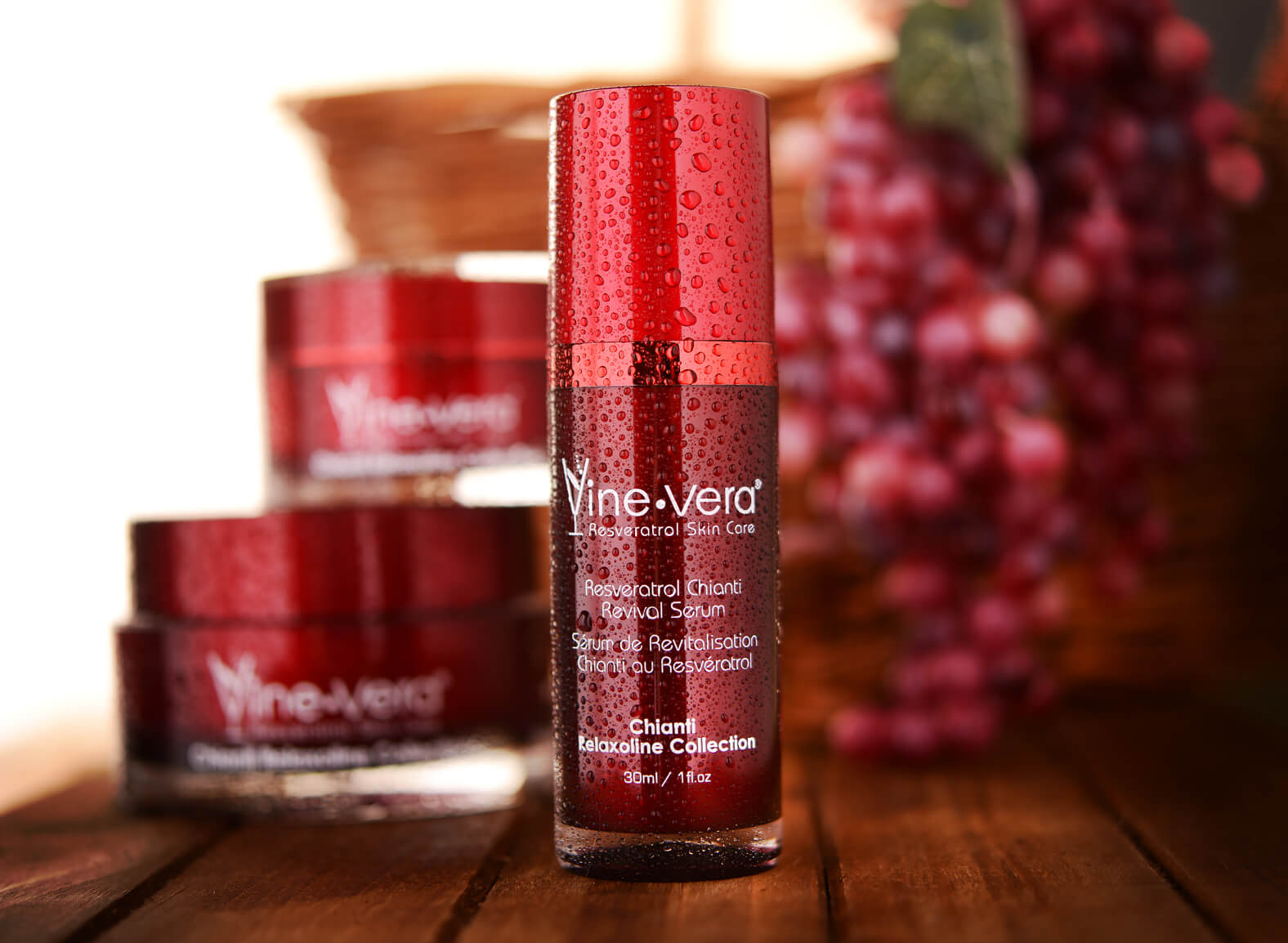
Water is an essential nutrient in itself. Without it, the body wouldn’t be able to survive for very long. Every single cell in the body requires water in order to function, and this includes your skin cells.
A lack of water will leave your body, as well as your skin, dehydrated. This causes a variety of problems. Some people experience an increase in sebum production, leading to oiliness and acne. Others notice the opposite, resulting in dry and flaky skin. When dehydrated, the skin also ages at a much faster rate, leaving the skin creased and sagging.
To keep your body sufficiently hydrated, you’ll need to drink six to eight cups of fluids each day. This doesn’t need to be limited to plain water. Tea, milk, and other sugar-free drinks also contribute to the body’s hydration levels.
There are plenty of water-rich foods that you could be adding to your diet too. For example, cucumbers consist of 96% water while water makes up 95% of tomatoes. Spinach, mushrooms, melons, and lettuce all also have a high water content.
If your skin is already showing signs of dehydration, it would be worth giving it some topical hydration too. The best way to do this is with the use of humectants. These are ingredients that attract and bind moisture, meaning that they provide near-immediate hydration. Some of the most readily available humectants around are sodium hyaluronate, glycerin, seaweed extract, and collagen. You’ll find all four in the Vine Vera Resveratrol Chianti Revival Serum. This incredibly hydrating formula will leave your skin feeling deeply quenched.
Combining Skin Food With the Right Skincare Products
In an ideal world, a healthy and balanced diet on its own would be enough to give you flawless skin. However, all of the modern-day damage that the skin undergoes on a daily basis, whether this be from sun exposure, pollution, stress, blue light exposure, or anything else, means that the skin can sometimes benefit from some extra support.
This is why it’s so beneficial to combine skin food with the right skincare products. This will enable you to give your complexion the nutrients that it needs from both the inside and the outside, which will give you skin that looks softer, brighter, and healthier than ever!
Click here to shop for more bestselling skincare products from Vine Vera.




 A.U.
A.U. B.R.
B.R. C.A.
C.A. M.X.
M.X. C.H.
C.H.








